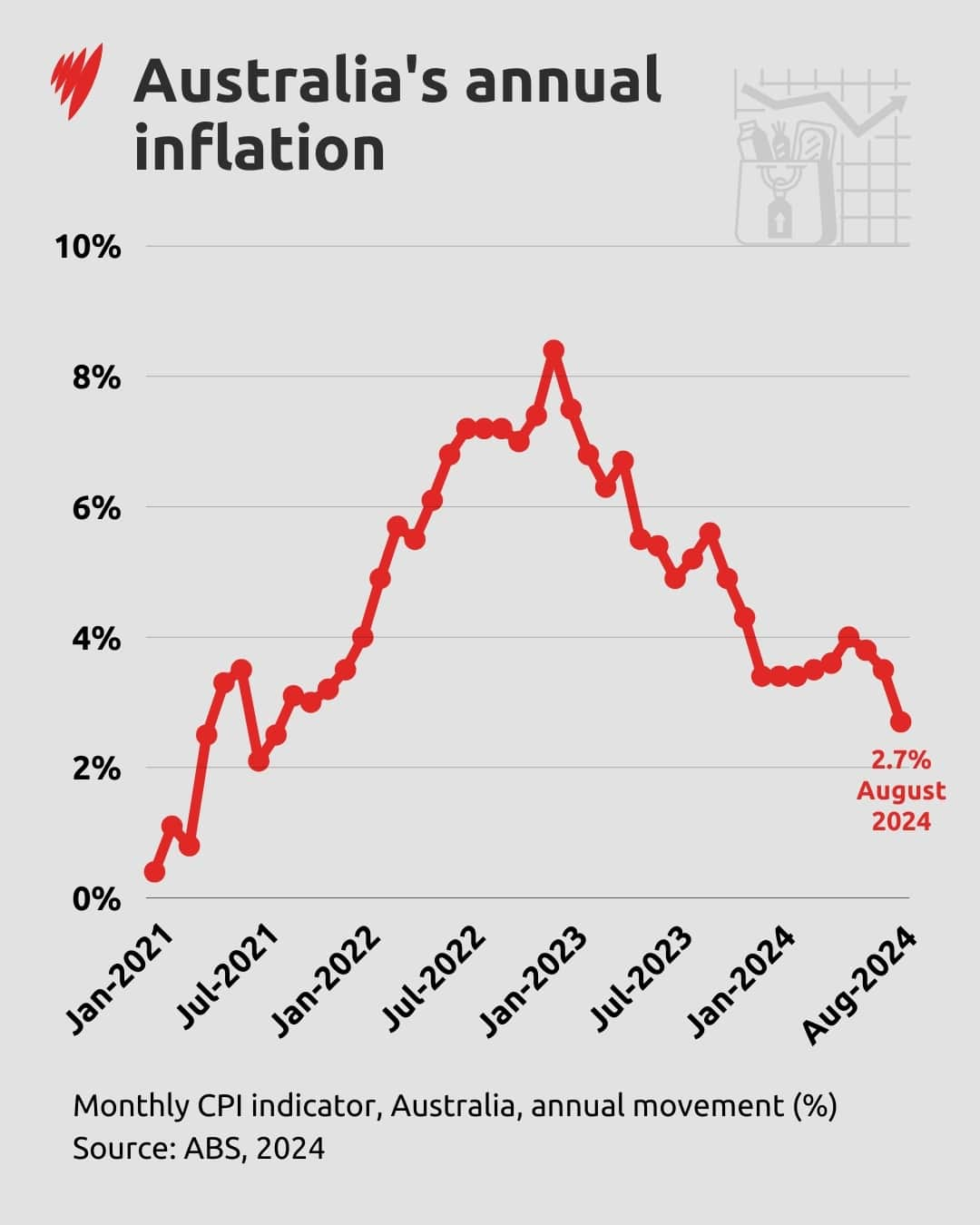Key Points
- The Reserve Bank released its half-year financial stability report on Thursday.
- While the report is optimistic on some issues, it warns of risks and vulnerabilities to Australia’s financial system.
- These include pressure on households, China’s financial ‘imbalances’ and dependence on ‘a small number of AI’.
Australia’s and interest rates are high — but households remain resilient despite a “rising share” of mortgage holders falling behind on repayments, the Reserve Bank of Australia (RBA) says.
The central bank on Thursday released its half-year financial stability report and while it is optimistic on some fronts, it warns of risks and vulnerabilities.
Here’s some of what the RBA has its eye on.
Pressure on households
The RBA said high inflation and are among the.
Most mortgage holders have experienced a 30 to 60 per cent increase in their minimum scheduled payments since the first increase in the cash rate rise in May 2022, it said.
The RBA says only a small group of borrowers — although the number is rising.
“A small but rising share of borrowers have fallen behind on their loan repayments, and the number of loans in arrears is likely to rise slightly in the period ahead,” the review notes.
“Loans in arrears represent a small share of total housing lending. Less than 1 per cent of all owner-occupier housing loan balances are 90+ days in arrears.”
The RBA said pressures on households and small businesses would likely increase in the event economic conditions worsened beyond forecasts, but if that did occur “widespread financial stress” would be limited.
“Very few borrowers are in negative equity on their mortgage, limiting the impact on lenders should some default,” the report says. “Those businesses entering insolvency are generally small and have little debt, limiting the broader spillovers to lenders including banks.”
Businesses have faced challenging conditions that sparked a sharp rise in insolvencies, the RBA said. But the rise has come on a low base
“On a cumulative basis, insolvencies remain below their pre-pandemic trend,” the report says.
Household disposable incomes have dropped to their lowest levels in at least six years, the report says.
But pressures on household budgets are expected to ease in the second half of 2024 due to the stage 3 tax cuts and forecast declines in inflation.
“If overall budget pressures do in fact ease in line with these forecasts and assumptions, the share of borrowers with an estimated cash flow shortfall is projected to decline by a couple of percentage points by 2026,” the report says.
Monthly inflation data showed headline price growth slowed to 2.7 per cent in the 12 months to August.
Underlying inflation also eased but is still running higher than the Reserve Bank’s two to three per cent target range at 3.4 per cent.
China’s financial ‘imbalances’
The central bank has warned that “while inflation has eased, the global economic outlook remains uncertain” and certain “vulnerabilities” could affect financial stability in Australia.
They include “negative surprises” that could spook financial markets, “operational vulnerabilities” in the digital economy, and “imbalances in China’s financial sector”.
“Some Chinese banks and non-bank lenders remain under pressure amid a ,” it said.
“Vulnerabilities in the Chinese financial sector could spill over to the rest of the economy, and to Australia and the world, through trade and global risk aversion channels.
“Stress in China’s financial system could affect the global financial system, including Australia, via slower economic growth and increased risk aversion in financial markets.”
China is Australia’s largest trading partner, and according to ABS, in 2023, it accounted for 12.9 per cent of the country’s total service exports.
China’s leadership, including President Xi Jinping, admitted on Thursday that the country’s economy was facing new “problems”, according to state media.
“Some new situations and problems have emerged in the current running of the economy,” China’s state-run Xinhua news agency reported after a meeting of the Politburo of the ruling Chinese Communist Party.
The downsides of AI dependence
The report also suggested (AI) already has a “substantial impact” on the country’s financial system, and alongside its benefits, this may “amplify existing risks” and “introduce new ones”.
According to the RBA, financial institutions’ dependence on “a small number of AI” could “create vulnerabilities due to a single point of failure”.
It also warned about other threats of AI and their impacts on the economy.
“Advances in AI have already increased the number and sophistication of cybersecurity threats and cyber-attacks that could significantly disrupt the financial system,” the review said.
“The emergence of GenAI (generative AI) has led to an increase in credible misinformation and scam content by malicious actors. This material has become increasingly difficult to identify and can cause financial losses, service disruption and erode trust in the targeted institution.”
Earlier this year, following the launch of the consultation on Safe and Responsible AI in Australia, the federal government said it was
Geopolitical tensions in Ukraine and the Middle East, climate change, and digitalisation are other external factors that the RBA has introduced as potential threats to the country’s economy.
With additional reporting from the Australian Associated Press.

